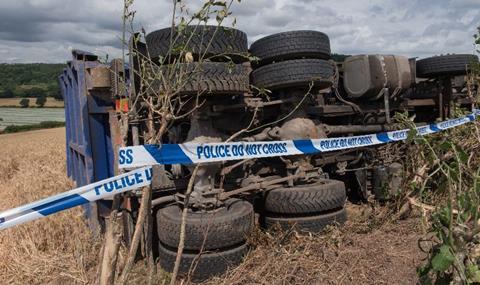
Over 2.5 million people died from Covid-19 in 2020, and the world has been galvanised into action by the devastating loss of life. Yet every year, more than one million people lose their lives in road collisions. But, unlike the pandemic, its most significant effect is among children and young adults. Road crashes are the leading cause of death for the 5 to 29 age group.
Worldwide, the number of road fatalities continues to increase each year. Yet, in Europe, deaths per capita fell by 37% in the last ten years, saving 56,000 lives. The saving in human costs is valued at €156bn, according to EU research.
For many years, the UK has either been the safest or the second safest place in the developed world when on the road inside a vehicle. Yet, strangely, it is the most dangerous for a pedestrian or a cyclist. Only provisional figures were available for the UK in 2020. Still, road casualties have remained static for the last 10 years, albeit from a low point compared with its European neighbours. A 17% decrease in the first half of 2020 is due to restrictions in travel as a result of the pandemic.
At its 15th Annual Conference last week, the European Road Safety Council compared the road collision data from the 32 Member States together with Israel, Norway, Serbia, Switzerland, and the UK, noting that 18,844 people lost their lives on EU roads in 2020.
Giannis Kefalogiannis, the Deputy Minister for Infrastructure and Transport in Greece, received the 2021 ETSC Road Safety Performance Index Award, recognising the country’s improved road safety. Road deaths in Greece fell by 54% over the decade to 2020. However, road deaths in Greece are still 54 per 1m population, 12 above the EU average of 42. In the UK this figure is 22.
HGVs account for less than 5% of mileage in the UK, but they are involved in over 40% of fatal collisions. Deaths in HGV collisions are declining more slowly (16% in the last ten years) than other deaths (21%). Pedestrians and cyclists represent one in five deaths involving an HGV.
Speed is still seen as the primary contributor to the cause of crashes involving HGVs. However, distraction, fatigue, seatbelts and driving under the influence of alcohol and/or drugs are still significant factors.
The Council endorsed the UN General Assembly resolution on road safety, which is co-sponsored by 55 governments. The resolution proclaims the period 2021–2030 as the Second Decade of Action for Road Safety. It seeks to reduce road deaths and serious injuries by at least 50% in that period.
In the trucking world, reaching those targets will largely depend on implementing mandatory vehicle safety measures, including Intelligent Speed Assistance (ISA), Electronic Data Recorders (EDR) and Direct Vision Standards for lorries.
TfL introduced a requirement for DVS last October for trucks over 12 tonnes within the M25. And the UK government has already indicated its support to introduce ISA on all new cars sold in Europe by 2022.
Matthew Baldwin, the European Coordinator for Road Safety and Sustainable Mobility, suggested that Intelligent Speed technology would be an essential contribution to road safety: “A major landmark was reached just the other day with the agreed implementing regulation by member states for ISA," he said. "We are looking at a saving of 7,000 or so deaths by 2030 and 25,000 by 2037.”
The other significant development is, of course, the new technology leading to connected and automated vehicles. The central promise of CAV technology is to improve road safety or, at least, limit the harm caused by collisions. However, this advance is sure to attract ethical concerns. Critics point out that aircraft have had automatic pilots for years, but there are still two pilots on commercial flights.
A recent 60-page European Commission report, Ethics of Connected And Automated Vehicles, raises more questions than answers on this issue. Tjark Kreuzinger, senior manager safety research and technical affairs for Toyota Motor Europe, admitted that occupant protection had been the priority for vehicle manufacturers to date. “Human error is still the biggest reason for accidents,” said Kreuzinger, but he believed manufacturers can assist the driver to do better through Advanced Driver Assistance. However, with a nod towards CAV, he added: “humans are still the most skilled operator of vehicles.”













